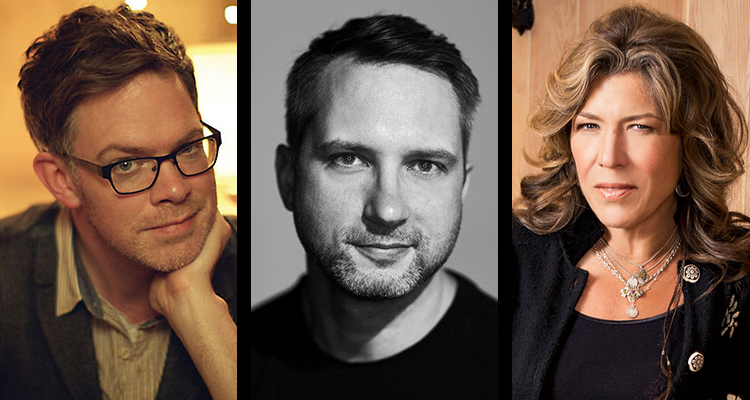Jason Gray, Brandon Heath and Ashley Cleveland are three of Christian music’s most prolific, and honest, songwriters. Inscribing accessible melodies with authentic life lyrics—ripe with the tension and ache of embodying souls built to live forever while the confines of our skin-and-bone obsess with the here-and-now—songwriting has given them the ability to share their very human stories and the hope for spiritual surrender with a broad audience … not unlike Rich Mullins.
Having each been directly influenced by Rich—Cleveland, through living alongside Mullins on the road for a season; Gray, through attending his concerts; Heath, growing up hearing him on tape. The three articulate songwriters engage in conversation about how music, and Mullins’ example, helps us share our scars.
CCM Magazine: What a privilege it is to commemorate Rich with good conversation, and with such good conversationalists. My first question pertains to your personal experiences with Rich’s music. What did you witness in his lyrics that you wanted to embody in your own music?
Brandon Heath: Rich’s lyrics were more like poetry—sometimes they don’t rhyme, you know? He threw a lot of rules out of the window. As a creative person, especially when I was younger and learning what my parameters were in songwriting, it was good to see someone breaking the rules, who didn’t mind being a little verbose at times and threw out meter when he was saying exactly what he wanted to say. My first number one song didn’t have a chorus, and I would definitely attribute it to Rich—he gave guys like me permission to say what I wanted to say the way I wanted to say it.
Ashley Cleveland: You know, in an industry that had very little genuine first-generation artistry, and by that, I mean, so much of what you heard was a kind of a Christian imitation of something that had already had success and had been created by somebody else in the mainstream, Rich Mullins was a genuine article. He was his own thing—almost militantly so. I mean … he wouldn’t even bathe for concerts. [Laughs]
Because I was somebody who was in the mainstream, and then was offered an opportunity to wade in the water of the Christian industry—I really had always kind of been attracted to writing about my faith—there was an intimacy in his lyrics where God was a lover. And I loved that. I love that, still.
CLICK “2” TO ADVANCE



Leave a Reply
You must be logged in to post a comment.